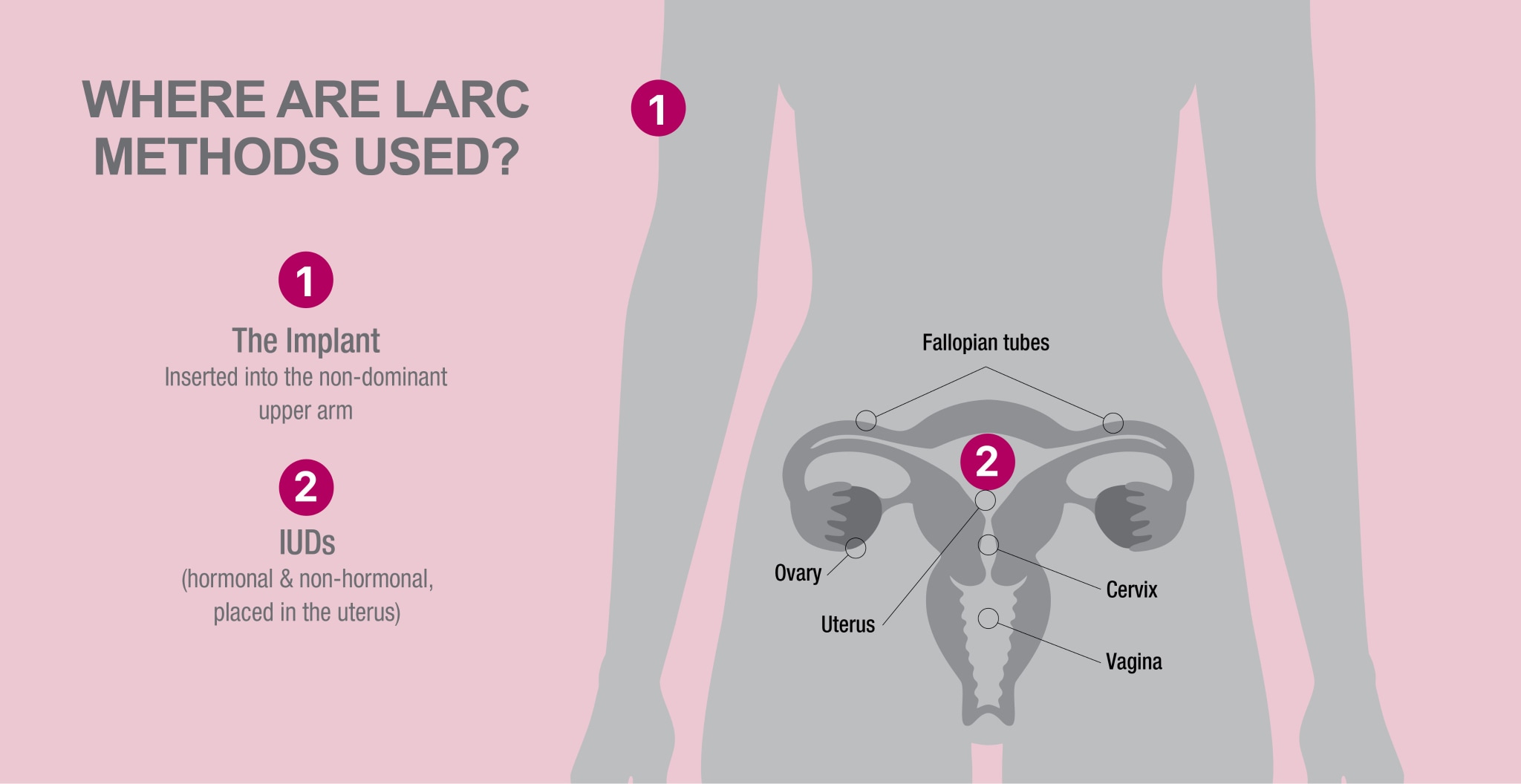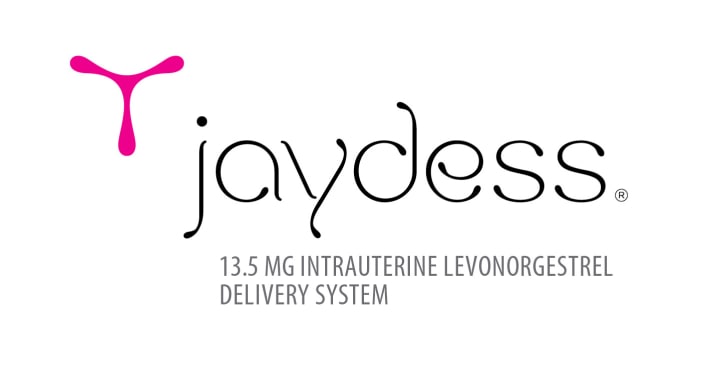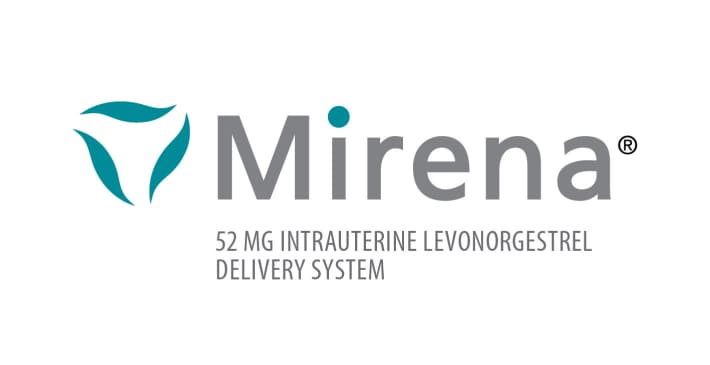LET’S TALK ABOUT LONG-ACTING REVERSIBLE CONTRACEPTION

WHAT IS LONG-ACTING REVERSIBLE CONTRACEPTION (LARC)?
LARC (birth control) methods include:
- The copper intrauterine device (IUD)
- IUDs that contain a small amount of the hormone levonorgestrel - Mirena® (52 mg intrauterine levonorgestrel delivery system) and Jaydess® (13.5 mg intrauterine levonorgestrel delivery system)
- The implant Jadelle® (2X75 mg levonorgestrel subcutaneous implants)
LARC methods are very effective at preventing unplanned pregnancy because they work without you having to remember to do anything on a regular basis – like take a pill every day or make an appointment to get an injection every 3 months. This is why LARC is sometimes called “fit and forget” contraception. However, you do need to make sure you have your LARC replaced at the right time. This depends on your LARC method.

HOW EFFECTIVE ARE THE DIFFERENT CONTRACEPTIVE METHODS?
LARC methods are some of the most effective forms of contraception available - comparable to permanent contraception - but with the benefit of being completely reversible if you change your mind and want to get pregnant.1-5

*Percentage of women experiencing an unintended pregnancy during the first year of typical use of contraception in the United States.2
WHAT IF I DECIDE THAT I WANT TO HAVE A BABY?
LARC methods are completely reversible. This means that if you decide you would like to have a baby, you can have your LARC removed and return to your normal level of fertility right away.3-5
And, if you already have a baby, LARC methods don’t contain estrogen and won’t affect how much breast milk you produce, so you can use them if you are breastfeeding.3-5
WHERE CAN I GET MORE INFORMATION ABOUT LARC AND WHO OFFERS LARC INSERTION SERVICES?
There are a number of different types of healthcare providers that may offer LARC insertion services including:
- Some specially trained doctors (GPs), nurses and midwives
- Sexual Wellbeing Aotearoa clinics
- Sexual health clinics
- Surgical abortion providers
- Specialist gynaecology clinics
Make an appointment to see your doctor or nurse, Sexual Wellbeing Aotearoa or local contraception clinic to discuss your contraceptive needs and help you decide whether a LARC is right for you.
The Sexual Wellbeing Aotearoa website https://sexualwellbeing.org.nz/ has a clinic finder so you can find a clinic near you, along with clinic contact details. Appointments are free for women under the age of 22.
References: 1. New Zealand Aotearoa’s Guidance on Contraception. NZ Ministry of Health. December 2020. https://www.health.govt.nz/publication/new-zealand-aotearoas-guidance-contraception; accessed June 2025. 2. Trussell J. Contraception. 2011; 83:397-404. 3. Mirena® Data Sheet, 10 April 2025. 4. Jaydess® Data Sheet, 7 April 2021. 5. Jadelle® Data Sheet, 21 September 2020.
MIRENA® (levonorgestrel). MIRENA® is an intrauterine system containing 52 mg levonorgestrel, which is slowly released at an initial rate of 20 mcg/24 hours. MIRENA is a Prescription Medicine for contraception and is effective for 8 years for prevention of pregnancy . MIRENA is also a treatment for unexplained heavy menstrual bleeding where no underlying pathology causing excessive bleeding can be found. Mirena is effective for 5 years for heavy menstrual bleeding. MIRENA is effective for 5 years for protection of the lining of the womb when oestrogen therapy is prescribed for menopausal symptoms. MIRENA must not be used during pregnancy, if there is any sign of pelvic or genital tract infection, inflammation or cancer, if there is womb or cervical abnormality, confirmed or suspected hormone-sensitive cancer including breast cancer, undiagnosed abnormal bleeding, active liver disease or if you are allergic to any ingredients in MIRENA. MIRENA should be inserted by a doctor who has been trained in the insertion technique. Removal of MIRENA is recommended if the following medical conditions occur: an increased susceptibility to infections, acute infection not responding to treatment. Migraine or severe headaches, jaundice, increased blood pressure, hormone-sensitive cancer, stroke, severe heart or blood vessel disease, blood clots may occur during MIRENA use, should this happen; your doctor may consider removal of MIRENA. MIRENA should be used with caution if you have diabetes or a heart condition from birth and are at risk of infection. MIRENA must be removed if pregnancy (which might be outside the womb) or puncture of the womb is suspected or if MIRENA is partially expelled. MIRENA does not protect against HIV infections (AIDS) and other sexually transmitted infections. The pattern of side effects, which are more common in the first months of use, should be explained to you. Commonly reported side effects include changes to menstrual patterns, painful menstruation, genital discharge, redness, or itching, headache/migraine, abdominal, breast or back pain, depressed mood, nervousness, nausea, acne, weight changes, decreased libido, excessive hair growth, benign ovarian cysts and expelled device. The possibility of side effects such as puncture of the womb, allergic reactions, bacterial infection of the blood, breast cancer, or pregnancy outside the womb should be discussed with your doctor, pharmacist or health professional. If symptoms persist or you have side effects, see your doctor for advice. MIRENA is a fully funded medicine – a pharmacy charge and normal Doctor’s visit fees and insertion fees may apply. MIRENA has both risks and benefits. Use only as directed. Consult your doctor to see if MIRENA is right for you. For more information, read the Consumer Medicine Information available at https://www.medsafe.govt.nz/Consumers/cmi/m/Mirena.pdf Bayer New Zealand Limited, PO Box 2825, Shortland Street, Auckland 1140, telephone 0800 229 376.
JAYDESS® (levonorgestrel) is an intrauterine system containing 13.5 mg levonorgestrel, which is slowly released over 3 years. JAYDESS® is a Prescription Medicine for contraception. JAYDESS must not be used during pregnancy, if there is any sign of pelvic or genital tract infection, inflammation or cancer, if there is womb or cervical abnormality, confirmed or suspected hormone-sensitive cancer including breast cancer, undiagnosed abnormal bleeding, active liver disease or if you are allergic to any ingredients in JAYDESS. JAYDESS should be inserted by a doctor who has been trained in the insertion technique. Removal of JAYDESS is recommended if the following medical conditions occur: an increased susceptibility to pelvic infections, acute infection not responding to treatment. Migraine or severe headaches, jaundice, increased blood pressure, hormone- sensitive cancer, stroke, severe heart or blood vessel disease, and/or blood clots may occur during JAYDESS use; should this happen, your doctor may consider removal of JAYDESS. JAYDESS should be used with caution if you have diabetes or a heart condition from birth and are at risk of infection. JAYDESS must be removed if pregnancy (which might be outside the womb) or puncture of the womb is suspected, or if JAYDESS is partially expelled. JAYDESS does not protect against HIV infections (AIDS) and other sexually transmitted infections. Commonly reported side effects include headache/migraine, abdominal or back pain, acne/oily skin, changes to menstrual pattern, cysts in the ovaries, depressed mood, painful menstruation, nausea, hair loss, breast pain/discomfort, expelled device, and genital discharge, redness or itching. The possibility of side effects such as puncture of the womb, allergic reactions, bacterial infection of the blood, or pregnancy outside the womb should be discussed with your doctor, pharmacist or health professional. If symptoms persist or you have side effects, see your doctor for advice. JAYDESS is a fully funded medicine – a pharmacy charge and normal Doctor’s visit fees and insertion fees may apply. JAYDESS has both risks and benefits. Use only as directed. Consult your doctor to see if JAYDESS is right for you. For more information, read the Consumer Medicine Information available at https://www.medsafe.govt.nz/consumers/cmi/j/jaydess.pdf Bayer New Zealand Limited, PO Box 2825, Shortland Street, Auckland 1140, telephone 0800 229 376. Bayer New Zealand Limited, 72-74 Taharoto Road, Takapuna, Auckland 0622.
JADELLE® (levonorgestrel). JADELLE® is a long-acting (up to 5 years ) progestogen-only contraceptive implant. It consists of two flexible white rods 43 mm in length and 2 .5 mm in diameter each containing 75 mg levonorgestrel. JADELLE is a Prescription Medicine used for contraception. JADELLE must not be used if you are pregnant or if you suspect you might be pregnant; if you have an active blood clotting disorder; if you have or have had a liver tumour or abnormal liver function; abnormal vaginal bleeding; sex-hormone-dependent cancers; or if you are sensitive to any of the ingredients of JADELLE. Careful consideration of the risks and benefits of JADELLE is required where there is a history of blood clots, heart attacks, stroke, diabetes with blood vessel damage or severe migraine. Use strictly as directed and inform your doctor immediately if any of the following occur: development or worsening of migraine; jaundice; depression; persistent headache; visual disturbances or changes to contact lens tolerance in contact lens wearers; severe abdominal pain together with no periods (an indication of a possible ectopic pregnancy ); a rod is expelled; you have pus or bleeding at the injection site; you have a lump in your breast or a blood clot (possible warning signs are severe pain in the chest or breathlessness or severe pain or swelling in one of your legs ); you develop breast cancer or a liver tumour; significant increase in blood pressure. Women with diabetes, a history of depression or conditions that might be worsened by fluid retention should be carefully monitored by their doctor. Side effects with JADELLE that may occur include headache, nervousness, dizziness, nausea, changes to your periods such as spotting or prolonged periods, inflammation of the cervix or vagina, vaginal discharge, genital itchiness, general pain or pain in the chest, back, lower abdomen or breasts, weight gain or loss, acne, bleeding or itching at the injection site, mood changes, depression, changes in libido, migraine, palpitations, high blood pressure, varicose veins, shortness of breath, abdominal discomfort, rise in total serum bilirubin, skin reactions such as rash, skin discolouration, itching, loss of hair from head or body, excessive hair growth, symptoms persist or you have side effects, see your doctor, pharmacist or health professional. Your doctor can give details of other less common side effects. Read the package insert carefully. In all situations where the reliability of JADELLE is reduced (such as a missing rod ) additional contraceptive precautions are required. JADELLE is a fully funded medicine. Normal Doctor’s visit and insertion /removal fees may apply. This medicine has risks and benefits. Ask your doctor if JADELLE is right for you. Additional information is available from https: / /www .medsafe .govt .nz /Consumers /cmi /j / jadelle .pdf or Bayer New Zealand Limited, PO Box 2825, Shortland Street, Auckland 1140, telephone 0800 233 988. ® Registered trademark of the Bayer Group, Germany.
Mirena®, Jaydess® and Jadelle® are registered trademarks of the Bayer Group, Germany.
PP-PF-WHC-NZ-0037-3 TAPS : NP23063 JULY 2025



